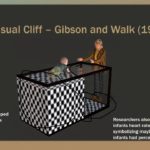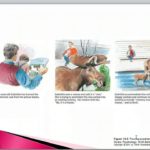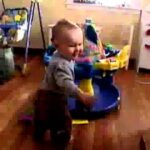Category: Developmental Psychology
Perceptual Development
Perception is the ability of humans to acquire information from the world through their senses. Perceptual development refers to the development of these senses, and this takes place mainly during the first year of life, according to the majority of … Continue reading →
Cognitive Development
Cognitive development is the increased functioning and enhanced performance in areas such as thinking, understanding, memory, perceptual skills and language. Examples of important researchers and theorists in the area of cognitive development in children are Jean Piaget and Lev Vygotsky.
Social Emotional Development
Several approaches have been adopted in the study of social emotional development, including social deprivation and attachment, and attachment styles and parenting styles, where many studies have clearly indicated that the relationship between caregiver and child can influence the … Continue reading →
Introjection
Introjection is a term coined by the Hungarian psychoanalyst Sándor Ferenczi in 1909, and refers to the antithesis of projection. Introjection is the hypothesized process of taking in information from the environment and internalising it, making it an object of … Continue reading →
Conservation
In Piagetian psychology, conservation is the ability for a child to keep in mind which aspects of an object stay the same and which aspects of an object change when it undergoes a physical change. For example, a child is shown … Continue reading →
Parenting Styles
A classic topic in developmental psychology is the classification of styles of parenting and their effect on the development of children. We differentiate between four basic styles based on two dimensions, which are the expectations of the parents and the … Continue reading →
Formal Operational Stage
The formal operational stage is the fourth and final stage of cognitive development in the Piagetian cognitive developmental theory, where a child is deemed able to consider all logical aspects of a problem. The stage is observed from about the … Continue reading →
Heredity
Heredity is a biological-genetic concept, which also has relevance for psychology. It refers the sum of all processes that allow for the transmission of particular characteristics from generation to generation. Heredity is also an indication of the constancy of a … Continue reading →
Sensorimotor Stage
The sensorimotor stage is the first stage of Piaget’s theory of cognitive development. In this stage, development consists of the coordination of perception and simple motor actions, and normally characterizes the first two years of life. The child differentiates herself … Continue reading →
Preoperational Stage
The preoperational stage is the second stage of Piaget’s theory, and occurs approximately between two and six years of age, when the child is not yet able to distinguish his perspective from that of other people (egocentrism). The child is … Continue reading →







